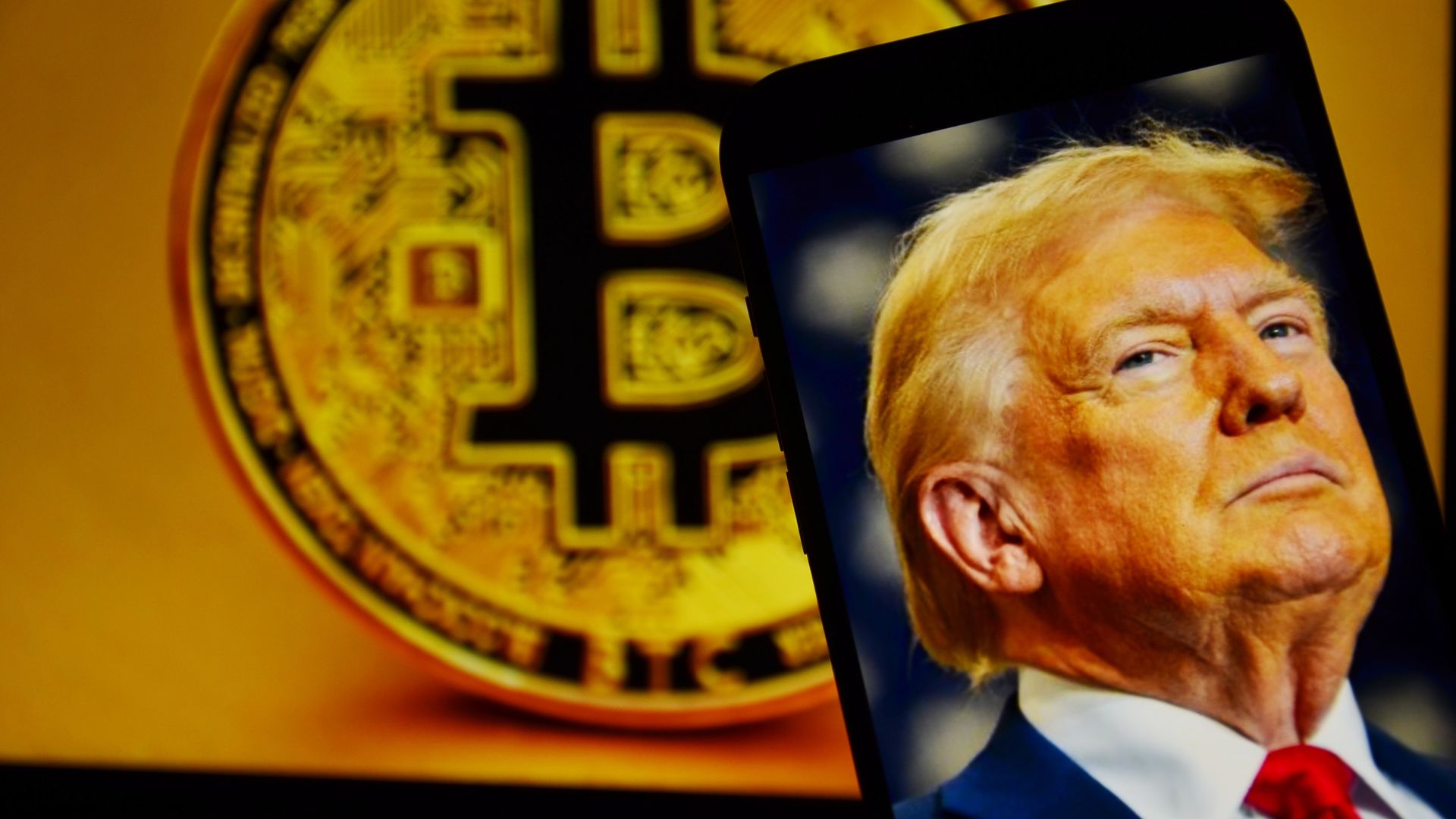
The House of Representatives came to a standstill Tuesday after a group of conservative Republicans joined Democrats to block a key procedural vote, freezing plans to move forward with multiple bills, including a major cryptocurrency measure and a defense appropriations bill.
A total of twelve House Republicans voted against the rule governing debate, a step usually passed along party lines to allow legislation to proceed to the floor.
Their move disrupted the leadership’s schedule to bring three cryptocurrency bills to a vote and stalled progress on one of the twelve annual spending bills—this one focused on the Department of Defense.
Trump’s Sovereign Wealth Fund: What Could It Mean For Your Money?
The most immediate point of contention centered on the Guiding and Establishing National Innovation for U.S. Stablecoins of 2025, also known as the GENIUS Act of 2025, which some GOP members said had been significantly altered by the Senate.
According to Fox News Digital, concerns ranged from policy disagreements to distrust of the Senate’s intentions.
Some House Republicans said they feared the Senate would decline to take up two of the three cryptocurrency bills, effectively forcing the House to accept Senate revisions without input.
Rep. Marjorie Taylor Greene, R-Ga., expressed concerns on X shortly before the vote, citing the GENIUS Act’s potential ties to central bank digital currency (CBDC).
This Could Be the Most Important Video Gun Owners Watch All Year
“This week, the House is voting on the GENIUS Act which lays the groundwork for a layered Central Bank Digital Currency (CBDC) where Americans interact with stablecoins but behind the scenes there are the functional surveillance capabilities of a CBDC,” she wrote.
“The bill as written does not expressly ban a CBDC and does not protect self-custody. Self-custody means that you control your own money, not a third party.”
This week, the House is voting on the GENIUS Act which lays the groundwork for a layered Central Bank Digital Currency (CBDC) where Americans interact with stablecoins but behind the scenes there are the functional surveillance capabilities of a CBDC.
The bill as written does… pic.twitter.com/GmdgX84SIE
— Rep. Marjorie Taylor Greene🇺🇸 (@RepMTG) July 15, 2025
I just voted NO on the Rule for the GENIUS Act because it does not include a ban on Central Bank Digital Currency and because Speaker Johnson did not allow us to submit amendments to the GENIUS Act.
Americans do not want a government-controlled Central Bank Digital Currency.… pic.twitter.com/NnkeIOH0dE
— Rep. Marjorie Taylor Greene🇺🇸 (@RepMTG) July 15, 2025
Rep. Tim Burchett, R-Tenn., told reporters that the no votes stemmed from unresolved questions about the bill.
“We had some questions about it and wanted to fix it,” Burchett said.
“There was an amendment. Folks had concern about an amendment they wanted to have on there. It dealt with the banking part.”
Despite the intra-party resistance, President Donald Trump voiced strong support for the cryptocurrency measures earlier in the day on Truth Social, calling for full Republican backing.
“The House will soon VOTE on a tremendous Bill to Make America the UNDISPUTED, NUMBER ONE LEADER in Digital Assets – Nobody does it better!” Trump wrote.
“The GENIUS Act is going to put our Great Nation lightyears ahead of China, Europe, and all others, who are trying endlessly to catch up, but they just can’t do it.”
Trump urged Republicans to pass the rule, stating, “Get the first Vote done this afternoon (ALL REPUBLICANS SHOULD VOTE YES!). This is our moment – Digital Assets, GENIUS, Clarity! It is all part of Making America Great Again, BIGGER AND BETTER THAN EVER BEFORE.”
The GENIUS Act is a trojan horse. It talks stablecoins but builds the CBDC framework behind the scenes. No protection for self-custody. No ban on surveillance money. And House leadership blocked any amendment to stop it. That’s a betrayal of Trump’s EO. https://t.co/I3eeQGHPwN
— Grace Chong, MBI (@gc22gc) July 15, 2025
Rep. Chip Roy, R-Texas, further explained the conservative objections, saying the Senate’s version of the GENIUS Act lacked firm protections against the establishment of a central bank digital currency.
“They have this stuff in the rule that we had some concerns with,” Roy said.
“We think [the Senate bill] leaves some room for some concern with respect to the central bank digital currency and that there not be a hard ban on that.”
Roy also noted unresolved issues with another measure, the Digital Asset Market Clarity Act of 2025 (CLARITY Act).
“We feel like we need to be dealing with all of this at once and make sure that we’re pretty clear about the central bank digital currency. So, we’ve got some more work to do,” he said.
House Freedom Caucus Chair Andy Harris, R-Md., added that the situation was unlikely to change unless the final bill explicitly prohibited a central bank digital currency.
“The outcome won’t change unless they’re willing to kill central bank digital currency,” Harris said.
When asked about the failed rule vote, Speaker Mike Johnson, R-La., indicated leadership was still working to resolve concerns and expected to revisit the vote on Wednesday.
“We’re still having conversations, answering questions from people,” Johnson said.
The failed rule vote highlights growing friction between House Republican leadership and fiscal conservatives, particularly as legislation originating in the House is altered or stalled by the Senate.
As GOP lawmakers push for greater control over digital asset regulation and a clearer stance against central bank-issued digital currencies, negotiations are expected to continue into the week.

![House Conservatives Block Crypto Bill That Could Usher in Central Bank Digital Currency [WATCH]](https://www.right2024.com/wp-content/uploads/2025/07/House-Conservatives-Block-Crypto-Bill-That-Could-Usher-in-Central-750x375.jpg)











